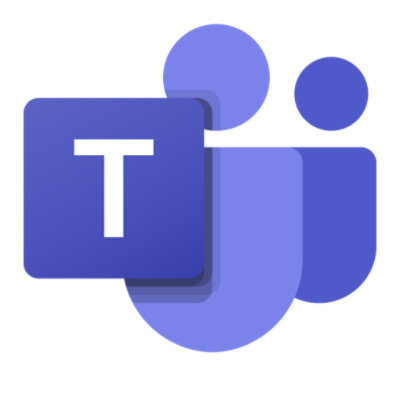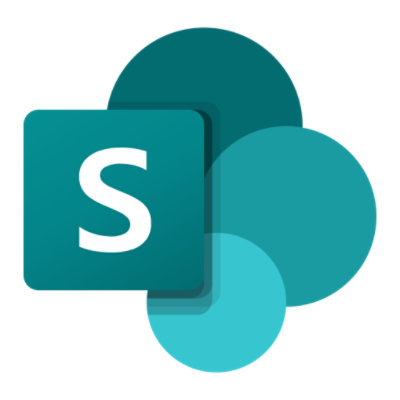Belgian railway infrastructure management company Infrabel is responsible for keeping the country connected. That begins with its employees. Starting in 2018, Infrabel underwent a culture-shifting transformation, moving from its old communications system to Microsoft Teams to enable better efficiency, flexibility, and connectivity between its employees in the hybrid work environment. To help its employees adapt to the change, the company underwent several training programs, ultimately resulting in a better-connected office community, a more flexible work environment, and a solid platform for a digitalized future.


“We immediately saw Teams as a way for us to do more with less”
Stéphane Samper, Team Lead, Microsoft Solutions

“Keeping people connected is at the heart of what we do as a company. But we’re only able to do that successfully if our workforce is connected too.”
Annelies Caekebeke, Lead for End User Adoption at Infrabel, is talking about the key emphasis that the Belgian railway infrastructure company places on making sure its employees operate as one.
“There are over 3,600 kilometres of rail track on our network, spanning the whole of Belgium,” says Caekebeke. "We have over 9,000 people working across that network, and each one is vital to making sure that all operations run smoothly".
“That’s the way we see our workforce: as a network of individuals, each with their own strengths and needs, all connected and working together.”
Strengthening that network – and the connections that hold it together – has been a main priority for Infrabel in recent times. When the pandemic hit in 2020, it sparked a major transformation of the digital infrastructure they used to keep their workforce together, including a shift from Skype for Business to Microsoft Teams Telephony.
But a major challenge the company faced was supporting all its employees to feel comfortable using the new technology at their disposal, with there being a wide range of technological capabilities amongst the company’s ranks.
“It was important to us that no one was left behind,” says Caekebeke. “The last thing we wanted was for anyone to feel lost or unsupported.”
So Infrabel embarked on an outreach programme to support to its valued workforce to start using the new digital tools. It has helped keep the company – and Belgium – connected.
A rail company inspired to change tracks
Headquartered in Brussels, Belgium, Infrabel is a government-owned PLC responsible for the entire Belgian railway infrastructure. Maintaining a safe, modern, and high-quality rail network are daily priorities for the company, who manage rail carriers not just from Belgium, but from all across Europe on a daily basis.
Aside from its day-to-day priorities, Infrabel also has the strategic goal to create a cleaner, greener rail network. “We want to facilitate the transition to the mobility of tomorrow – to connect a whole world of possibilities,” says Caekebeke. “So sustainable rail management is a major guiding principle for us.”
But the company knows that it’s not enough to have guiding principles if you don’t have an inspired and connected workforce to turn that vision into a reality.
“We care about our people, our community,” continues Caekebeke. “Our employees guarantee our success, so it’s important that they are happy and fulfilled. We want to use tech to help them – not just with their workload – but to be better connected.”
That was already a focus for the company in 2018, when Infrabel introduced Microsoft Teams as a collaboration tool for small groups. But when everyone started working remotely during the pandemic, the company quickly expanded the use of Teams across the whole company, realising that it was a tool that could centralize all work into one place.
“We immediately saw Teams as a way for us to do more with less,” says Stéphane Samper, Team Lead for Microsoft Solutions. “Every employee would be able to have one standardized product for communication as opposed to several different ones, which would be extremely helpful with everyone working remotely.”
That meant switching the company’s existing on-premises telephony system to Microsoft teams too. To do this, Infrabel enlisted the support of Microsoft partner Telenet.
“Integration with Teams was pretty straightforward,” says Samper. “Telenet helped implement Teams Telephony so that all external calls could go through that. The migration process was very smooth and quick.”
The greater challenge lay in supporting its workforce to start using the new system.

Overcoming fears of change with human solutions
With expectations high for the potential of Teams for remote work, the goal now for Infrabel was to onboard its employees, many of whom were daunted at the prospect of the new digital tools headed their way.
“The vast majority were anxious to use the new tech and were initially resistant,” says Caekebeke. “I remember having conversations with some employees where they’d tell me: ‘No way am I wearing a head set all day!’
“This was a major issue,” she continues. “We want our employees to put all their energy into their work, because it’s crucial to keep Belgium’s railway running. They shouldn’t feel frustrated with a new digital tool, as this frustration is a blockage when it comes to producing good quality work.”
Infrabel needed to develop an end-user adoption strategy that would take away those frustrations and fears of the unknown. “For the transition to work, it was important for us to be in touch with the emotions of our employees, and that can’t be captured by a service desk,” says Caekebeke.
“So we introduced the ‘Digital Buddies’ network – a network of people who weren’t with the IT department but who understood technology well,” she continues. “Because if change is coming from someone you know rather than a detached IT department, you are more likely to accept it.”
It was a strategy that worked, with employees soon feeling more supported in their onboarding. So next, Infrabel decided to raise awareness around its upcoming tech and create more desire for digital change using Microsoft Yammer.
“Our office community was already on Yammer, using it as a way to have informal chats with each other,” says Samper. “So from a strategic standpoint, we had an existing platform that could help us to reach out to teams across our network, and to capture the voice of the end-users and see their feedback on new products.”
By monitoring community attitudes on Yammer, Infrabel could plan training to support the specific needs of its workforce, the next step in its onboarding programme.

Training for every type of learner
“One of the big challenges for us when it came to training was the variety of learning styles we have within our ranks,” says Caekebeke. “We have a lot of employees at Infrabel, each with their own unique needs. So it was important that we had something inclusive, for everyone – from the quick learners to those who needed more help. We didn’t want anyone to be left behind.”
With so many employees to train, Infrabel reached out to training partner, Xylos, to develop short videos aimed at employees who only required a little training.
“The videos, which became available through the Xylos OASE e-learning tool, were essentially FAQs,” says Caekebeke. “They saved a lot of time for our quicker learners, who didn’t need to attend any training days or webinars.
“For those quick learners, we also released various manuals, quick reference cards, and tips and tricks through SharePoint online,” she adds.
For employees who required a more in-depth approach, the company used its own training centre – Infrabel Academy – to organize longer workshops.
“Workshops would run up to two days,” explains Caekebeke. “And between the workshops, we also released hour-long webinars.
“So we did a lot to overcome training challenges and it paid off for us, as Teams really helped the whole company to stay connected during the pandemic.”

All onboard for a digitalized future
With the onboarding of its workforce complete, Infrabel was soon reaping the benefits of the new technology at its disposal.
“Teams really proved itself to be much more flexible and stable compared to our previous solution,” says Samper. “Teams Telephony especially really helped sustain the new way of working brought on by the pandemic and ensured business continuity.”
Today, Infrabel has around 8,000 active Teams users. “Teams makes it is so much easier to collaborate in the hybrid work environment,” says Caekebeke. “And we’ve seen positive impacts on productivity too, with ‘long and large’ meetings at 42% today as opposed to 50% before the transition.”
As it looks to the future, Infrabel now plans to focus on two key areas over the coming years: digitalization and data centricity.
“We’re excited to work towards improving the quality of our data and learning how to analyze that data too,” explains Caekebeke. “So, we are looking into strengthening our Microsoft Power BI expertise for the future.”
It is clear that Microsoft Teams is just one stop on a long digital journey ahead and, with employees completely onboard for future innovation, the company is ready to fully embrace a digitalized future.

Explore related stories
Fuel innovation with Microsoft

Talk to an expert about custom solutions








Follow Microsoft